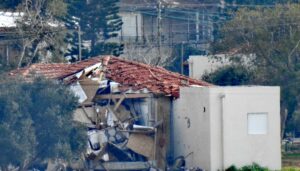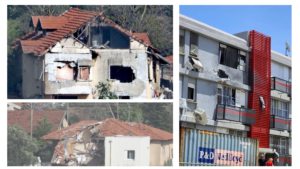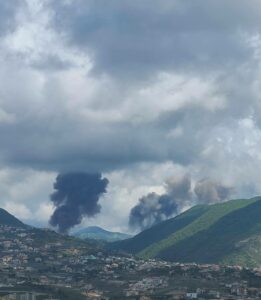On February 3 all contact was lost with political activist Lokman Slim in the town of Srifa, by the evening his phone was found dropped in the field, his body was found in his car the next day (February 04) in the Al Nabatieh area. Slim was killed by five gunshots to the head and body.

Shiite Lokman Slim is considered one of Hezbollah’s main opponents. He was born in the Shiite Haret Hreik neighborhood in Beirut in 1962. He is a graduate of philosophy at the Sorbonne in Paris. In 1990, he founded the Al-Jadid publishing house, which distributes Arabic literature and articles. His father, Mohsen Slim from Ghobeiry was an attorney by profession and served as a Member of Parliament. The father is considered one of the most prominent figures for human rights and the protection of the Lebanese constitution.
In 2004, Slim co-founded the “Uamam Research and Documentation Center”, which is based in Haret Hreik. The center’s goal is an open archive of materials relating to the social and political history of Lebanon and documenting the civil war. Salim himself was dedicated to writing books, organizing exhibitions and debates on the subject of MIA’s from the Civil War, and focused on the fate of children who participated in the battles.

Slim is considered one of the biggest opponents of Hezbollah. He has been widely accused of betrayal by Hezbollah associates and the Hezbollah-affiliated press. Many articles “on behalf of” accused him of “being a spy” and incited against him because of his positions. During protests in Lebanon in December 2019, Slim’s house, in the Haret Hreik neighborhood, was attacked by Hezbollah supporters.
After the death of Slim, many different political elements in Lebanon belonging to the Hezbollah opposition camp expressed concern for the future of the country and spoke out strongly against Hezbollah and even against the Iranian patron.
On the other hand, as expected, Hezbollah supporters on social media accused Hezbollah’s opponents of killing Lokman Slim. Among others, they blamed the US embassy in Lebanon, Saudi Arabia, and the Lebanese forces (Samir Geagea’s party). In addition, they raised the possibility that it was a suicide, a personal conflict, a gambling problem, a robbery gone wrong, or an argument over the right of way in the street. For some reason, at first, they did not accuse Israel of murder… However, as of this writing, accusations, and conspiracies in which Israel is blamed have also begun to appear on social media…
Following the assassination, there were extensive labeling campaigns by Hezbollah supporters on social media with the hashtags #without_saddeness and #murdered_Slim_and_walked_behind_his_coffin (a label that actually accuses Hezbollah opponents of killing Slim).
There is no doubt that the narrative that Hezbollah and its supporters are interested in reinforcing is that Slim was murdered on criminal grounds. Hezbollah’s campaigns on the networks began immediately after Slim’s body was discovered. In all likelihood, they were scheduled and planned in advance on behalf of Hezbollah and their purpose was to reinforce the narrative that this was a murder on a criminal background, not a premeditated political assassination.
Hezbollah is an expert in eliminating people who interfere in its path. Hezbollah does not resort to means to carry out such assassinations and if it is a “disruptive personality” or more accurately a “persona non-grata”, it does not matter to Hezbollah what its status and influence are (for example, Rafik al-Hariri).
As far as Hezbollah is concerned, military commanders within Hezbollah will also be eliminated if necessary (Who Assassinated Ali Muhammad Yunis?).
In our opinion, in all probability, Hezbollah carried out the assassination of Salim on political grounds and this is not murder on criminal grounds.






